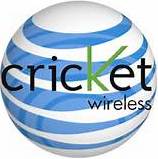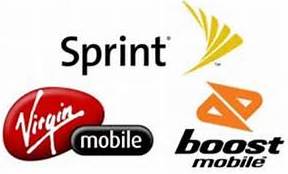Prepaid Wireless Companies
& Their Off-Brands
Are off-brand prepaid wireless companies a good deal, or a marketing
ploy to get you to buy inferior service?! Firstly, if you
found this page looking to compare prepaid wireless provider plans in
detail, please scroll down to find links to a plethora of information
on this site that do just that. Second, you may be asking
yourself "What is an off-brand provider?". I classify these
as either prepaid brands owned and operated by national providers (i.e. AT&T has Cricket, Sprint has Boost & Virgin Mobile,
T-Mobile has
MetroPCS), or MVNOs that run on the national provider networks (ex.
TracFone, PagePlus, Ready Mobile, Google Project Fi).
AT&T has Cricket, Sprint has Boost & Virgin Mobile,
T-Mobile has
MetroPCS), or MVNOs that run on the national provider networks (ex.
TracFone, PagePlus, Ready Mobile, Google Project Fi).When we see, for example, that Cricket offers the same, or virtually the same, features as does its parent company AT&T, but at a fraction of the price, is there a catch? Are we getting scammed into a lesser service? How can they do that without cannibalizing their postpaid customers? Is there anything we need to know to avoid getting scammed?
I've described in detail what MVNOs are, and why they exist, so you can catch up on that by heading over to MVNOs. Here I'll focus on brands that are fully owned and operated by the major carriers. Is there some kind of underlying trick or secret strategy that we customers need to by privy to? The answer to this question can be uncovered by exploring the following questions:
Why Have a Different Brand?
Why don't national carriers simply use their own brand, and have a prepaid service option? This is exactly the strategy that AT&T had historically with its GoPhone product. GoPhone has always been an AT&T prepaid service. Sprint also dabbled with Sprint Prepaid. The value of this approach is leveraging an already recognizable brand. However, using that recognizable brand is also a detriment!What I meant by that is that such an approach doesn't allow the carrier to re-invent themselves. It also more directly competes with its postpaid products. It's not uncommon, for example, for people not to know that Cricket is owned by AT&T. It's really similar to car brand strategies that have proven the power of brands, even when people actually do understand their associations. For example, Toyota & Lexus, Nissan & Infinity, Honda & Acura. These brands can hit different demographics, different value propositions, and completely different positioning, even when the underlying platform, and technology are the same. Companies try to style them differently enough that customers paying more for the luxury brand don't feel ripped off, however, it's still often very obviously a leveraged strategy.
The same theory applies to the wireless industry. Carriers can:
- Target different demographics.

- Reinvent themselves by portraying a different brand meaning and culture.
- Take risks that don't impact the parent brand or revenue if they fail.
- Minimize cannibalization of postpaid customers by the simple lack of awareness of the brand relationship.
- Pivot strategies more quickly with a sub-brand than trying to do so with the entire parent company.
- Target different competitors to attack new markets to grow the overall company.
Is It a Scam Or Are There Catches We Need to Know?
The short answer is, NO, it's not a scam at all. The discussion above should help provide you with confidence that there are real, perfectly honest business benefits to operating prepaid under a different brand. There are, however, some "catches" that customers should be aware of. Note that many of these have actually been implemented by prepaid wireless companies to help differentiate their prepaid and postpaid programs. In other words, they are artificially introduced into the plans to help them justify to postpaid customers why they're paying so much more for essentially the same network and services! Here are the considerations:- Coverage - Typically carriers limit their prepaid brands to only run on their native network, and don't allow roaming on third party networks. This provides a cost savings, as well as postpaid brand differentiation.
- Data Speed - Prepaid carriers sometimes limit download speeds. For example, Cricket historically has been limited to 8Mbps, while AT&T customers get closer to 40Mbps. This speaks solely to creating postpaid brand differentiation. Note, however, that even though this sounds like a large speed discrepancy, most of us wouldn't be able to discern the difference. On WiFi, my home broadband connection often gets less than 10Mbps. So customers really need to consider what the real world impact is for you. It's not as though they're throttling prepaid customers to 3G or 2G; we still get 4G, but at a limited rate. These speeds are more than sufficient to stream HD video, and perform any other tasks on our smartphones. Perhaps less than 1% of the target population may take issue with this speed reduction.
- Phone Cost - Carriers that still offer large phone subsidies on postpaid don't do that on prepaid. Some prepaid wireless companies also limit what kind of financing or leasing options are available on their prepaid brands.
- Features - Some carriers limit certain features from being available on prepaid. For example, historically T-Mobile doesn't allow its prepaid customers to access Binge On, which allows you to stream video without counting towards your data plan allowance. Some will not offer, or limit international roaming. That said, many prepaid providers offer fantastic international add-ons that often aren't even available on postpaid! In addition, mobile hotspot may be a feature only included on a postpaid plan, and may be unavailable or be subject to an additional add-on cost for prepaid.
- Priority - Some prepaid wireless companies will prioritize postpaid traffic over prepaid when the network is congested. This can result in prepaid customers noticing a speed or call quality reduction at peak hours in certain cities or areas. Again, think about whether you're impacted by this or would even notice.
 It's
interesting to note that sometimes prepaid has features that
postpaid customers don't get! For example, there are several
prepaid brands that offer a $5 monthly discount for setting up
autopay. Also, consider that most prepaid plans include
telecom taxes in the plan price, while postpaid customers have to pay
these taxes on top of their base plan price.
It's
interesting to note that sometimes prepaid has features that
postpaid customers don't get! For example, there are several
prepaid brands that offer a $5 monthly discount for setting up
autopay. Also, consider that most prepaid plans include
telecom taxes in the plan price, while postpaid customers have to pay
these taxes on top of their base plan price.Conclusion
Prepaid wireless companies running prepaid under a different brand is NOT a scam. In addition, the underlying differences are often not material to real world use. For those differences that are important to you, you'll want to weight them against the cost benefit of prepaid, and not having to sign a contract. As we have seen over recent years, postpaid and prepaid are converging, with postpaid looking more and more like prepaid. I continue to believe that prepaid is the future (as it has been the standard in other countries for many years). These off-brands largely benefit customers, and should not be seen as negative or otherwise deceitful.
Home
›
What Is Prepaid Wireless?
›
Prepaid Wireless Companies & Off-Brands
| Be Heard! Let prepaid wireless providers know what you want; fill out the survey now. |



Comments
Have your say about what you just read! Leave a comment in the box below.